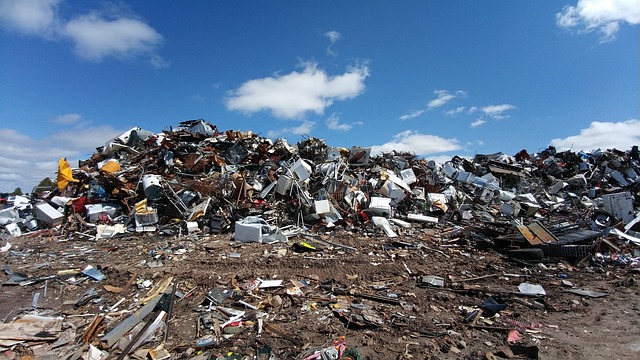ASTM D8084 Semi-Volatile Organics in Hazardous Waste
The ASTM D8084 standard provides a method to determine semi-volatile organic compounds (SVOCs) in hazardous waste. This is an essential process for ensuring compliance with environmental regulations and mitigating the potential risks associated with hazardous materials.
Hazardous waste encompasses a wide range of substances, including solvents, pesticides, dyes, and other chemical products that can pose serious threats to human health and the environment if not properly managed. SVOCs are particularly concerning because they persist in the environment for extended periods and can bioaccumulate, leading to long-term impacts on ecosystems.
ASTM D8084 outlines a comprehensive approach to sampling, extraction, and analysis of SVOCs using solvent-based techniques. The method is designed to be robust yet flexible, allowing laboratories to tailor their procedures to the specific characteristics of the waste samples they are testing.
The standard specifies detailed instructions for:
- Sampling protocols
- Solvent extraction methods
- Sample preparation steps
- Analytical techniques using gas chromatography-mass spectrometry (GC-MS)
The goal is to ensure accurate and precise measurement of SVOCs, which helps in assessing the overall composition and potential hazards of hazardous waste. Compliance with ASTM D8084 is crucial for facilities handling or disposing of hazardous materials, as it ensures that they are meeting regulatory requirements and minimizing environmental impact.
By using this method, laboratories can provide reliable data to support decision-making processes related to waste management and disposal practices. This information is vital for ensuring that operations comply with local, national, and international regulations governing the handling of hazardous materials.
The significance of ASTM D8084 cannot be overstated in today’s regulatory landscape. It provides a standardized approach that enhances consistency across different testing laboratories, reducing variability and increasing confidence in the results. This standard also supports continuous improvement efforts by identifying areas where further optimization or additional measures might be necessary.
Why It Matters
The importance of ASTM D8084 lies in its role as a key tool for managing hazardous waste responsibly and sustainably. Proper identification and quantification of SVOCs are critical steps towards achieving this goal.
Regulatory compliance is paramount when dealing with hazardous waste. Regulatory bodies like the Environmental Protection Agency (EPA) require rigorous testing to ensure that waste materials do not exceed allowable limits for harmful substances. By adhering to ASTM D8084, laboratories demonstrate their commitment to meeting these stringent standards.
In addition to regulatory compliance, understanding the SVOC content of hazardous waste is essential for effective risk assessment and management strategies. Knowledge about specific compounds present allows stakeholders to prioritize mitigation efforts where they are most needed. For instance, if certain SVOCs are found in higher concentrations than others, resources can be directed towards reducing exposure or disposal methods that minimize their release into the environment.
The environmental impact of improper waste management cannot be underestimated. Improperly treated hazardous waste has been linked to numerous ecological issues such as soil contamination and water pollution. By employing accurate testing methodologies like those prescribed by ASTM D8084, facilities can play an active role in preventing these adverse effects.
Moreover, from a business perspective, adhering to best practices outlined in this standard offers several advantages. Firstly, it enhances reputation among clients who value sustainability and corporate responsibility. Secondly, early detection of problematic compounds enables proactive measures that avoid costly penalties associated with non-compliance.
Quality and Reliability Assurance
To maintain high standards in testing for semi-volatile organic compounds (SVOCs) as per ASTM D8084, several quality assurance practices must be implemented. These include strict adherence to procedural guidelines, regular calibration of equipment, and participation in proficiency tests.
- Procedural Adherence: Ensuring that all steps outlined in ASTM D8084 are followed meticulously is crucial for obtaining reliable results. From sample collection through final analysis, each step should be carefully documented to trace any potential deviations or errors.
- Equipment Calibration: Given the precision required by this method, frequent calibration of analytical instruments like GC-MS units ensures accurate measurements. This not only enhances data quality but also supports continuous improvement initiatives aimed at refining techniques further down the line.
- Participation in Proficiency Tests: Engaging in external proficiency testing programs allows for benchmarking performance against other laboratories worldwide. It serves as a valuable tool for identifying strengths and areas requiring enhancement, thereby fostering excellence within the organization.
In summary, rigorous quality assurance measures are integral to delivering accurate and credible results under ASTM D8084. They form part of an ongoing commitment to excellence that benefits both internal processes and external stakeholders alike.
Competitive Advantage and Market Impact
The implementation of ASTM D8084 semi-volatile organic compounds (SVOCs) testing offers significant competitive advantages in the waste management industry. By providing precise and reliable data, laboratories gain a reputation for expertise that commands respect among clients seeking assurance regarding their compliance with environmental regulations.
For quality managers responsible for overseeing hazardous waste operations, having access to accurate SVOC information ensures they can make informed decisions about treatment processes. This not only enhances operational efficiency but also minimizes costs associated with unnecessary over-treatment or under-treatment of materials.
In the broader market context, adhering to ASTM D8084 standards signals commitment to sustainability and responsible business practices. It positions organizations as leaders in environmental stewardship, which can be a powerful differentiator in competitive markets where eco-friendly credentials are increasingly valued by customers.
Furthermore, compliance with this standard opens up opportunities for collaboration with international partners who also adhere to similar norms. This fosters a collaborative environment conducive to innovation and knowledge exchange across borders.
The demand for reliable SVOC testing services continues to grow as more industries recognize the importance of sustainable practices. Organizations that invest in establishing themselves as leaders in this field stand to benefit from increased market share, improved profitability, and enhanced brand reputation.





